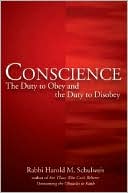Category Books
- Fiction Books & Literature
- Graphic Novels
- Horror
- Mystery & Crime
- Poetry
- Romance Books
- Science Fiction & Fantasy
- Thrillers
- Westerns
- Ages 0-2
- Ages 3-5
- Ages 6-8
- Ages 9-12
- Teens
- Children's Books
- African Americans
- Antiques & Collectibles
- Art, Architecture & Photography
- Bibles & Bible Studies
- Biography
- Business Books
- Christianity
- Computer Books & Technology Books
- Cookbooks, Food & Wine
- Crafts & Hobbies Books
- Education & Teaching
- Engineering
- Entertainment
- Foreign Languages
- Game Books
- Gay & Lesbian
- Health Books, Diet & Fitness Books
- History
- Home & Garden
- Humor Books
- Judaism & Judaica
- Law
- Medical Books
- New Age & Spirituality
- Nonfiction
- Parenting & Family
- Pets
- Philosophy
- Political Books & Current Events Books
- Psychology & Psychotherapy
- Reference
- Religion Books
- Science & Nature
- Self Improvement
- Sex & Relationships
- Social Sciences
- Sports & Adventure
- Study Guides & Test Prep
- Travel
- True Crime
- Weddings
- Women's Studies
Conscience: The Duty to Obey and the Duty to Disobey »

Authors: Harold M. Schulweis
ISBN-13: 9781580233750, ISBN-10: 1580233759
Format: Hardcover
Publisher: Jewish Lights Publishing
Date Published: October 2008
Edition: (Non-applicable)
Author Biography: Harold M. Schulweis
Book Synopsis
This clarion call to rethink our moral and political behavior examines the idea of conscience and the role conscience plays in our relationships to government, law, ethics, religion, human nature and God-and to each other. From Abraham to Abu Ghraib, from the dissenting prophets to Darfur, Rabbi Harold Schulweis probes history, the Bible and the works of contemporary thinkers for ideas about both critical disobedience and uncritical obedience. He illuminates the potential for evil and the potential for good that rests within us as individuals and as a society.
By questioning religion's capacity-and will-to break from mindless conformity, Rabbi Schulweis challenges us to counter our current suppressive culture of obedience with the culture of moral compassion, and to fulfill religion's obligation to make room for and carry out courageous moral dissent.
Publishers Weekly
In this articulate and cogent treatise, Schulweis, longtime congregational rabbi and founding chairman of the Jewish Foundation for the Righteous, argues that acts of disobedience can be appropriate and moral when law violates conscience. Referencing the Midrash, Bible and Talmud, he argues that both the popular understanding of God as a being who cannot be contradicted and of Judaism as a religion that requires uncompromising obedience to authority is mistaken. Throughout Jewish history, he explains, rabbis have created ingenious legal maneuvers to eliminate laws they found unconscionable, such as making capital punishment so difficult to implement that it became obsolete. Furthermore, God's engagement with humanity, most famously his interaction with Abraham before he destroys Sodom, indicates a willingness for confrontations promoting morality and righteousness. Schulweis's broad knowledge is evident as he intersperses biblical anecdotes with philosophical theories, as is his ability to make his thesis relevant by including material on the Holocaust and references to Abu Ghraib. Whether religious or not, readers concerned with the culture of mindless complicity will find this volume revealing and enlightening. (Nov.)
Copyright © Reed Business Information, a division of Reed Elsevier Inc. All rights reserved.Table of Contents
Introduction 1
1 Conscience Confronts God 7
2 Human Conscience and Divine Legislation 23
3 Conscience and Covenant: Vertical and Horizontal 45
4 Against Conscience 59
5 Witness to Goodness 71
6 The Conscience of an Anti-Semite 91
7 Cultivating Conscience 101
8 The Bridge across the Rivers of "Either-Or" 109
Notes 127
Subjects
 Ethics & Moral Philosophy
Ethics & Moral PhilosophyChristianity
 Judaism & Judaica
Judaism & Judaica  Customs, Practices, & Rituals - Judaism
Customs, Practices, & Rituals - JudaismChristianity
 Judaism & Judaica
Judaism & Judaica  General & Miscellaneous Judaism
General & Miscellaneous JudaismChristianity
 Judaism & Judaica
Judaism & Judaica  Jewish Philosophy
Jewish PhilosophyChristianity
 All Religion
All Religion  General & Miscellaneous Religion
General & Miscellaneous ReligionJudaism & Judaica
 General & Miscellaneous Judaism
General & Miscellaneous Judaism  Faith (Judaism)
Faith (Judaism)Judaism & Judaica
 Jewish Philosophy
Jewish Philosophy  Jewish ethics
Jewish ethicsNonfiction
 Philosophy
Philosophy  General & Miscellaneous Philosophy
General & Miscellaneous PhilosophyNonfiction
 Philosophy
Philosophy  Major Branches of Philosophical Study
Major Branches of Philosophical StudyNonfiction
 Social Sciences
Social Sciences  Jewish Studies
Jewish StudiesPhilosophy
 General & Miscellaneous Philosophy
General & Miscellaneous Philosophy  Jewish Philosophy
Jewish PhilosophyPhilosophy
 Major Branches of Philosophical Study
Major Branches of Philosophical Study  Ethics & Moral Philosophy
Ethics & Moral PhilosophyReligion Books
 Judaism & Judaica
Judaism & Judaica  Customs, Practices, & Rituals - Judaism
Customs, Practices, & Rituals - JudaismReligion Books
 Judaism & Judaica
Judaism & Judaica  General & Miscellaneous Judaism
General & Miscellaneous JudaismReligion Books
 Judaism & Judaica
Judaism & Judaica  Jewish Philosophy
Jewish PhilosophyReligion Books
 All Religion
All Religion  General & Miscellaneous Religion
General & Miscellaneous ReligionScience & Nature
 Social Sciences
Social Sciences  Jewish Studies
Jewish StudiesSocial Sciences
 Jewish Studies
Jewish Studies  Jewish Philosophy
Jewish PhilosophyChristianity
 Christianity
Christianity  All Religion
All ReligionNonfiction
 Religion
Religion  All Religion
All ReligionReligion Books
 Christianity
Christianity  All Religion
All Religion
